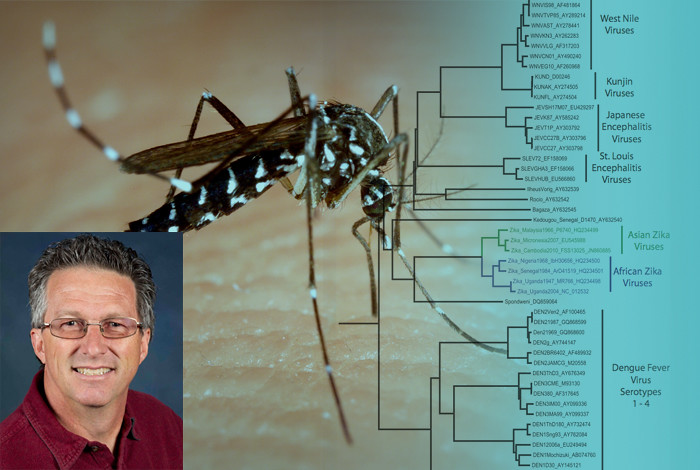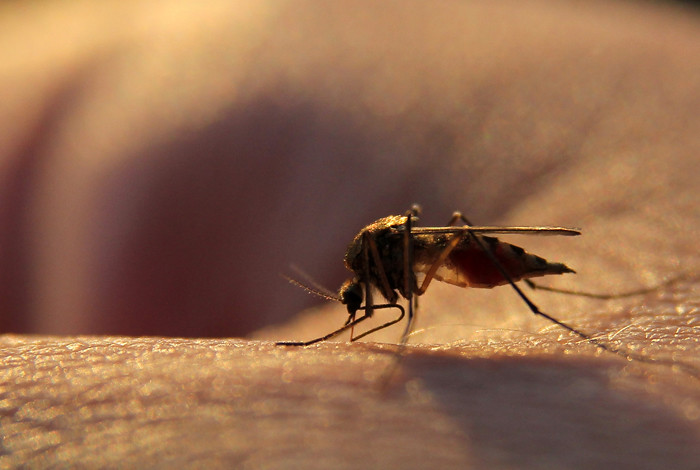Risk of Zika virus is low in New Mexico

Los Alamos National Lab epidemiologist Brian Foley co-authored a chapter on Zika virus in a recently published book on global virology and said there is little for New Mexicans to worry about when it comes to being infected with Zika.
Although there have been recent news reports about Zika virus reaching the United States, the risk of a local epidemic is very low, according to Lab epidemiologist Brian Foley. “So far, there is essentially zero risk of Zika virus in New Mexico,” Foley says. “But people who travel to Mexico, Central America, South America, or other more moist and tropical places should be aware of the risks associated with mosquito bites there.”
“The Zika virus, as well as dengue fever virus, West Nile virus and many other viruses are spread by mosquito bites,” Foley explains. “Each of the viruses tends to be spread by a specific species of mosquito—so the mosquitoes that carry West Nile virus are not the same species as the mosquitoes that carry dengue fever and Zika viruses.”
To cause a Zika outbreak in the U.S., the species of mosquito that carries Zika would have to bite an already infected person during the first week of infection when the virus is still in the person’s blood. Then the infected mosquito must live long enough to multiply the virus and to bite another person, creating a cycle that must continue multiple times before an outbreak could start.
The Centers for Disease Control and Prevention report there have been no mosquito-borne Zika virus disease cases in the U.S., but there have been travel-associated cases. “I think we will see Zika, dengue fever, and other viruses becoming a problem in the U.S within a few years, mostly confined to humid areas in the South,” Foley says. “We will need to work on methods of mosquito control that are safer than DDT and most other insecticides.”
In search of a vaccine
Finding vaccines is also a priority. Foley and his Lab group study HIV, ebola, hepatitis C, papilloma, and influenza viruses, as well as tuberculosis, botulism, and other diseases. “A large part of our work on HIV is devoted to aiding researchers around the world with the efforts to produce a vaccine which can protect people from infection,” he says. “Each type of virus presents different challenges for vaccine design as well as for treatment and control methods.”
The discovery of a vaccine for Zika virus should be less challenging than for HIV, which has a more diverse genome. In fact, several companies have plans for human trials of a Zika vaccine in the immediate future.
Educate yourself
“Bacteria and viruses are everywhere, and most of them are not harmful at all. Many are even very beneficial,” Foley adds. “Ebola last year and Zika this year are all over the news, but West Nile virus, hepatitis virus, and others are really more of a risk to most of us. We need to be aware and informed, but not made afraid of these things.”

According to the Centers for Disease Control and Prevention, there have been no mosquito-borne Zika virus disease cases in the United States.






